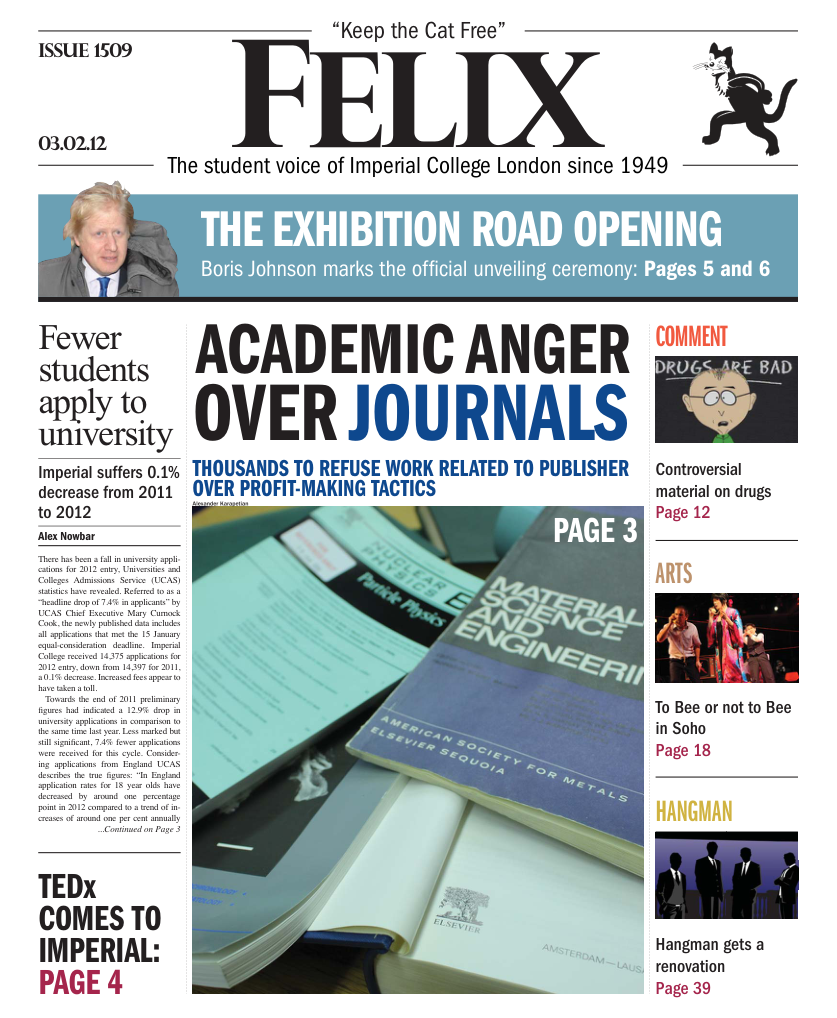10% cut in grant for clubs
Concerns raised over impact of financial reallocation
Last week the Union’s Executive Committee ruled to cut the grant available next year to the Clubs & Societies Board, the Representation & Welfare Board and the Executive itself by ten percent. The £33,820 total, the vast majority of which comes from the Clubs & Societies Board owing to its large budget, will be reallocated to help improve student activity support services.
Writing last Friday in his official blog Deputy President (Finance & Services) Michael Foster explained the Committee’s reasoning in making the decision, saying that “while student activity has been increasing yearly – along with how much money Clubs, Societies & Projects (CSPs) are saving – there has been little-to-no increase in the resources available for supporting these groups”. He further explained that “the administrative impact of operating CSPs includes IT infrastructure (including online memberships and eActivities), financial administration (especially the processing of claims, purchase orders and invoices) and the design and delivery of officer training” and that these are areas which will be considered for improvement using the new funding. However, in a statement to Felix he added that “no decisions about the destination of the reallocation have yet been made”.
...no decisions about the destination of the reallocation have yet been made Michael Foster, Deputy President (Finance & Services)
Concerns about this change were raised by Henry Abbot, the ACC chair, who said that “the CSB pot has already been frozen and cut in recent years. In real terms the pot 2012/13 pot is 38% less than the 2008/09 pot, whilst participation is significantly increased. If money for financial systems cannot be found elsewhere, it’s essential that next year’s executive committee remember that this is not a permanent cut but a one-off investment. In the face of cuts clubs will inevitably ask their members to pay more, pricing more students out of more activities, which is really not where we want our union to be going.” RCSU Vice-President (Operations) Paul Beaumont also added that while some societies could rely more on their savings rather than the Union grant this argument “ doesn’t hold for societies that have to make large investments (say £30,000) every ten years [...] hence why they need their subvention”. He said that while he agrees with more investment in student support services he questions whether some of the money could have been found from the “Union’s day to day accounts”, which he says are “closed to its members” and so are not available for scrutiny.
Foster countered this by saying that since “the total grant underspend last year was greater than the changes to CSP funding” it would be unnecessary for societies to dip into their savings any more than usual. He added that while the Union accounts “are on restricted circulation”, and so not available online “interested Union members can see them whenever they wish” by “ coming to the Union and asking to see them”.
While this may remain a controversial decision for some it certainly has potential to improve the student experience at Imperial. It is, however, clear that the full consequences of this decision will only begin to be seen next year.





